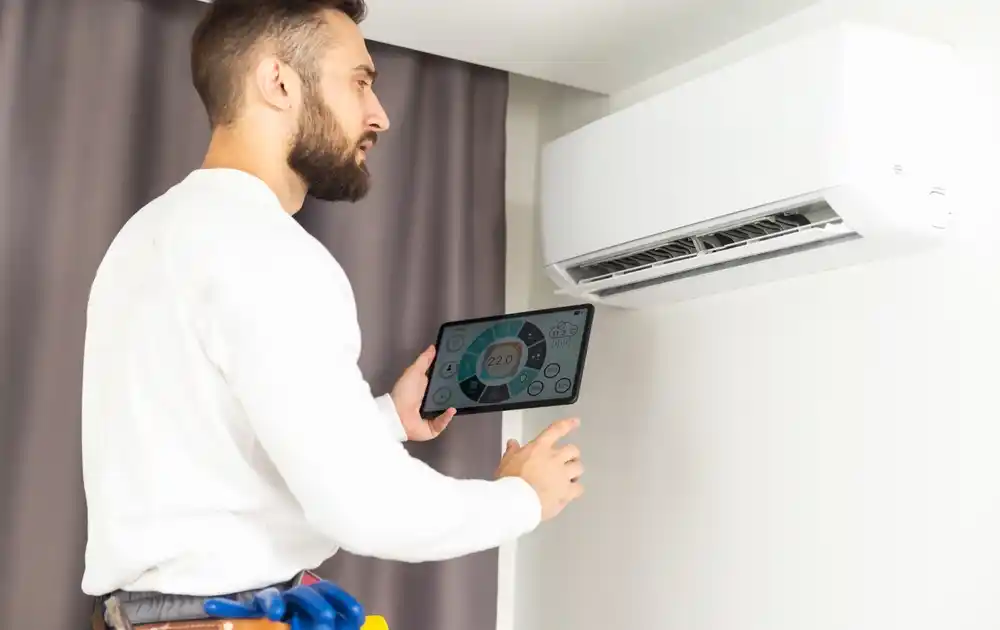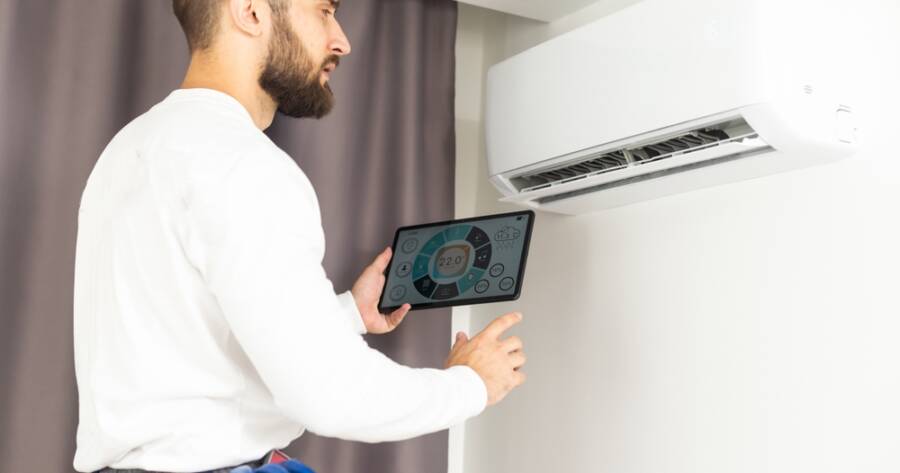HVAC CRM software promises to refine workflows — from scheduling to invoicing. This tool is a game-changer, offering unparalleled organization and automation capabilities that can significantly enhance team productivity and customer satisfaction. Its strategic implementation can lead to a dramatic reduction in administrative burdens, allowing your workforce to focus on core service and growth activities. With data and insights at your fingertips, informed decision-making becomes routine. Start a search today to find HVAC CRM software solutions.
What Is HVAC CRM Software?
HVAC CRM software is a specialized tool designed to assist heating, ventilation, and air conditioning businesses in managing their customer relationships and business operations efficiently. It’s a digital system that combines various functionalities such as customer data management, scheduling, dispatching, sales and lead tracking, job quoting, invoicing, and service management in a cohesive framework. With HVAC CRM software, companies can focus more on what they do best — servicing their customers — while the software takes care of the intricate details of business operations.
Streamlining Scheduling and Dispatch
The logistical intricacies of dispatching technicians efficiently can be a source of lost time and resources. HVAC CRM software introduces a dynamic scheduling system that accounts for variables such as technician availability, location, and skillset. With this system in place, the likelihood of overbooking, underutilizing staff, or mismatching technician expertise with job requirements is significantly diminished. This efficiency not only bolsters productivity but also elevates customer trust, as they receive timely and expert service.
Enhancing Sales and Lead Management
Sales growth is the lifeline of any HVAC business, and CRM software is the tool that pumps vitality into this area. By tracking potential leads and ongoing projects, the software provides a clear vision of the sales pipeline. It allows for the identification of upselling opportunities and the nurturing of leads at every stage. The ability to send out timely quotes and follow-up can mean the difference between a stagnant sales month and a flourishing quarter.
Automating Workflow and Minimizing Errors
Automation is at the heart of HVAC CRM software, aiming to reduce the manual workload that can lead to errors and inefficiencies. Invoicing and payment processing are automated, ensuring accuracy and timely billing. This automation extends to service reminders, warranty expirations, and regular maintenance schedules, keeping the business proactive rather than reactive. With fewer errors and less time spent on manual entry, staff can focus on delivering exceptional service.
Offering Insightful Reporting and Analysis
Understanding business performance and customer trends is crucial for any company aiming to grow. HVAC CRM software comes equipped with analytical tools that provide a wealth of actionable data. These reports shed light on everything from service delivery times to customer satisfaction levels, highlighting areas of success and those needing improvement. With this knowledge, business owners can make informed decisions to steer their company towards greater efficiency and profitability.
Elevating Customer Service
Ultimately, the customer experience is the true judge of a company’s success. HVAC CRM software enriches this experience by ensuring that customers are engaged and their needs anticipated. With detailed records and service history at their fingertips, technicians can provide personalized service, making customers feel valued. This personal touch, combined with the efficiency and professionalism offered by CRM software, can turn one-time clients into lifelong advocates for the business.
Factors To Consider When Shopping for HVAC CRM Software
Selecting the right HVAC CRM software requires careful consideration of several factors to ensure it meets your needs. Here are some factors to keep in mind:
- System compatibility: The chosen software should integrate smoothly with your existing tools and systems. It should also be scalable and adaptable to future technologies.
- Ease of use: A user-friendly interface is vital to ensure your team can quickly learn and effectively use the software.
- Customization: The software must be customizable to fit your specific business processes and requirements.
- Mobile access: Given that technicians are often in the field, the CRM software should be accessible on mobile devices.
- Essential features: Identify the key features you need — such as scheduling, invoicing, and reporting — and avoid paying for unnecessary extras.
- Data security: Ensure the software adheres to data protection laws and offers robust security features to safeguard customer information.
- Support services: Check what kind of support and training the vendor offers and read customer reviews to gauge the quality of these services.
- Pricing: Consider the overall cost, including any hidden fees for additional features or users, to ensure the software is a cost-effective solution.
By focusing on these core areas, you can narrow down your choices and select an HVAC CRM software that will efficiently support your business operations.
The Bottom Line
The implementation of HVAC CRM software is more than a mere upgrade in technology — it is a transformation of the very workflow that defines an HVAC business. It fosters a synergistic environment where efficiency, customer service, and business growth go hand in hand. By embracing this solution, an HVAC company can not only expect to see an improvement in day-to-day operations but can also set the stage for long-term success and industry leadership.
 Shutterstock: Andrew Angelov
Shutterstock: Andrew Angelov
